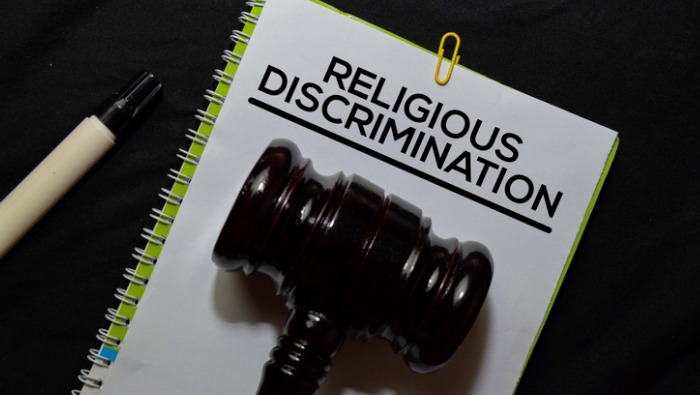Earlier this year, the Equal Employment Opportunity Commission (EEOC) released its Annual Performance Report and Charge Statistics for fiscal year 2022, which showed a sudden increase in charges of religious discrimination. The number of religious-based charges increased by over 11,000 over the previous fiscal year (FY). In brief, the EEOC attributed this outlying statistic in its year-to-year charge report, which goes back to FY 1997, to pandemic-era vaccine mandates. The significant spike in religious discrimination charges comes during a year when various state and federal courts have examined religious exemptions and religious accommodations. On June 29th, 2023, the U.S. Supreme Court (SCOTUS) ruled on the standard for undue hardship in a religious accommodation case.
Religious Discrimination Under Title VII of the Civil Rights Act
One of seven main protected classes under Title VII of the Civil Rights Act (Title VII), religious discrimination involves treating an employee or applicant unfavorably because of their religious beliefs. The law applies to traditional organized religions, like Christianity, Buddhism, and Islam, as well as any sincerely-held religious, ethical, or moral belief.
Barring undue hardship on a business, an employer must also reasonably accommodate an individual’s religious beliefs or practices. Examples of a religious accommodation may include:
- altering an employee’s schedule so that they can attend church, or
- suspending a portion of a dress code so that an employee can wear traditional facial hair.
Additionally, an employer may not force an employee to participate in any particular religious activity as a condition of employment. This includes religious exemptions for vaccine mandates. However, the religious beliefs must be sincerely-held and not suddenly adopted only to avoid vaccination.
Increase in Religious Discrimination Charges
In FY 2022, charges of religious discrimination increased by 11,703 over FY 2021, a jump of over 600%. In total, there were 13,814 religious-based charges (or 18.4%) of all charges filed. With respect to this outlying statistic, the EEOC noted that “there was a significant increase in vaccine-related charges filed on the basis of religion. As a result, FY 2022 data may vary compared to previous years.” Indeed, charges of religious discrimination have driven an overall increase in total charges filed with the EEOC between FY 2021 and FY 2022, 61,331 up to 73,485 respectively. Employees that sought religious exemptions to the COVID-19 vaccine mandates during the pandemic likely fueled the increases reflected in the charge data released at the end of the fiscal year.
Employer Takeaways
Despite the outlying statistic, employers may still want to note the significant increase in charges (about 20% more in 2022) filed with the EEOC by employees alleging discrimination. They should examine their own hiring and firing practices to ensure they don’t discriminate against or unfairly disadvantage members of federally-protected classes. In addition, as cases covering religious-based discrimination and exemption laws pop up at the federal and state level, employers should be mindful of what equal employment opportunity law actually states on the subject.
The June 2023 SCOTUS ruling on religious accommodation clarified the undue hardship standard to mean “a substantial burden in the overall context of an employer’s business.” This relates to substantially increased costs in relation to a particular business. With this in mind, employers should consult expert legal counsel and their state’s law before denying an employee or applicant’s request for religious accommodation.

